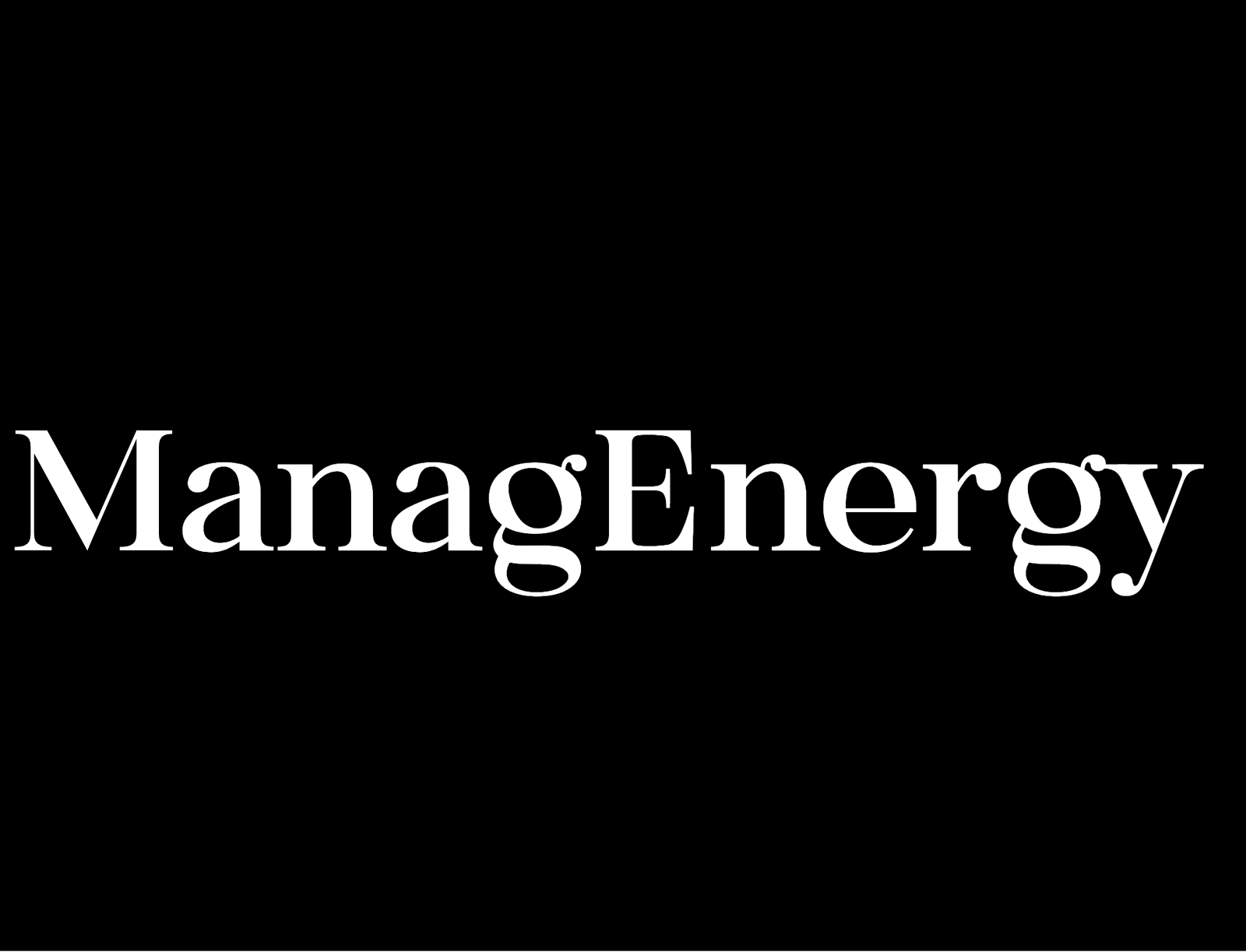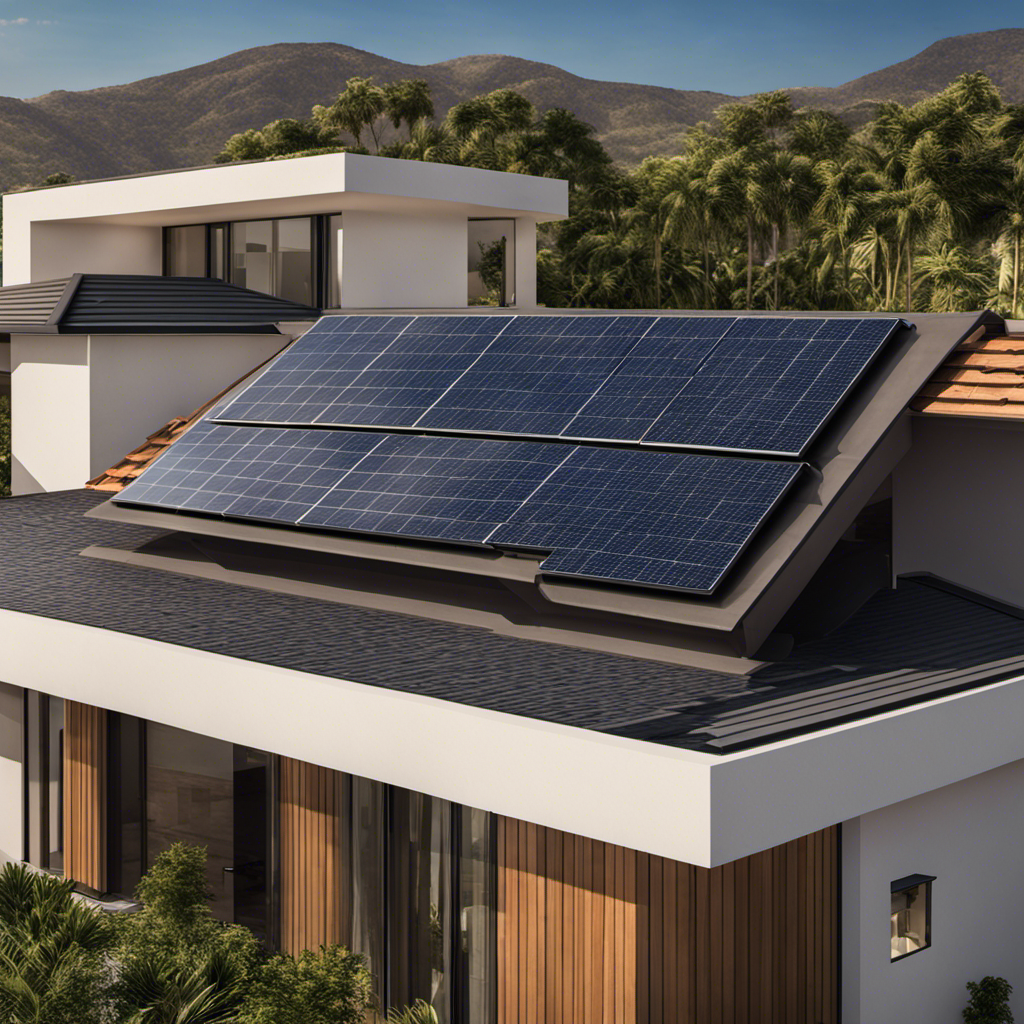Solar
Unlock the Savings with Solar Power in 2023

The solar power sector is currently experiencing rapid growth. This technology is advancing quickly. Worldwide, governments are promoting its use as a renewable energy option. Several firms provide services for solar power installations, including batteries and inverters.
Given all these benefits, it would make sense for you to go solar in 2023. But before you decide, we have a few things to cover. Read on to find out what we have for you!
All About Home Energy
Home energy costs are a major concern for homeowners. Home solar power systems have become popular due to their cost-tolerant nature and reliability. With solar energy systems for the home, homeowners can easily reduce their energy costs and also protect the environment. Homeowners can save up to half of their utility bills by installing solar panels.
Home solar power system installation costs vary depending on the size of the system and the solar panel brand used. The average cost per watt is $3.50 in the US today. Residential electricity costs rose 8% in 2022, making solar energy a smart investment. Homes with solar panels can sell for 4.1% more, with some states offering tax exemptions for solar panel owners.
Home solar power system installation is a good way to generate clean energy and reduce emissions. Home solar energy system installation is a technology that can help energize the world with renewable energy.
What to Consider Before Going Solar in 2023
There are a number of factors to consider before you go solar in 2023. The most important consideration is your budget. You’ll want to find solar panels that are tailored to your specific needs and requirements, so it’s important to consider the type of solar panel system that will be best for your home. Other key considerations include the location of your home, the amount of sunlight exposure, and the type of roofing material. Another way to save money by going solar while still using your energy bill as a guide is by financing your solar installation through a solar loan or lease. There are a variety of financing options available, so you can choose the right one for you.
Solar Tax Credits in 2023
The Biden Administration passed the Inflation Reduction Act of 2022, extending the Federal Solar Investment Tax Credit through 2035. The tax credit reduces the income tax liability for solar installation companies and energy companies that use solar power. It provides a credit for a fixed percentage of installation costs for solar energy systems, ranging from 30% to 30% for solar panel systems installed after 2022. The tax credit is available for solar energy system installation costs up to a maximum credit value of $1500 per system installation.
In addition, federal and state incentives such as rebates, tax incentives, and net metering programs help solar energy companies gain an edge over other energy companies. New Hampshire offers a renewable electric generation rebate program, property tax exemption, and net metering program to promote solar energy use. These incentives help businesses and homeowners save money on their energy bills while promoting a clean energy source.
Solar Energy 101
- Solar energy is a clean, renewable energy source that can help power the world. It’s created when sunlight is converted into electricity.
- Solar panels are made of silicon, metal, and glass, and are built to last for 25 years or or more. They’re usually small solar panels with a solar panel efficiency of around 15-20%. The size of solar panel can increase efficiency by creating a larger surface area for sunlight to be captured.
- Solar panel installation costs vary depending on location and system size. However, they have become increasingly cost-effective over time. There are cost incentives available in many countries to encourage solar panel installation, such as tax benefits and rebates.
- They can be recycled to re-use around 80-100% of their material. That means solar energy has a bright future ahead.
The Rise of Solar Power
Solar energy has become a cost-effective and environmentally friendly solution for a range of applications. Solar technology has many applications and benefits from solar power to thermal energy. Solar panel systems can be installed on your roof to generate electricity, which you can use to power your appliances or sell back to the grid.
Additionally, solar panels can help reduce energy consumption by using renewable energy instead of non-renewable energy sources. However, solar power is not a perfect solution; it has its drawbacks, such as a limited storage capacity and a slow installation pace.
So, while solar power is a great option for reducing energy costs and carbon emissions, it must be used alongside other energy conservation strategies.
Old News: Fossil Fuels
Fossil fuels such as coal and gas are non-renewable energy sources. These energy sources have a limited supply and can damage the environment over a long period.
In contrast, renewable energy sources such as solar power have a clean and renewable energy output. However, solar energy only accounts for a small percentage of global energy consumption. Therefore, it is crucial to use renewable and non-renewable energy sources to reduce the environmental impact and meet national energy demands.
Global warming is a consequence of the use of fossil fuels. By limiting the usage of these energy sources, we can reduce global climate change and address energy challenges faced by developing countries today.
Get Your Free Customized Solar Quote
Getting a free solar system quote from a solar company can be a great way to learn about solar energy and solar power systems. You can get a free quote from solar companies who have experience designing and installing solar panel systems for customers.
A solar system comprises solar panels, batteries, inverters, and other equipment that power a home or business with electricity.
When you get a solar system quote from a solar company, you can customize the system to suit your energy needs and budget. You can also explore the many financial incentives available for solar energy systems, such as federal tax credit financing and state renewable energy tax incentives.
Getting a customized solar system quote from a reputable solar energy company can help you unlock savings and sustainability benefits of solar energy.
What to Consider Before Going Solar
If you are considering solar energy as a renewable energy option, there are several solar options to consider besides rooftop solar. One type of solar energy is ground-mounted solar energy, which involves installing solar energy equipment on the ground rather than on a rooftop.
This can be an affordable and clean energy source for your home. Another option is community solar, where a group of individuals or organizations purchase a share in a panel system that can power their homes with renewable energy.
Another consideration is the costs associated with solar power. The upfront cost of solar equipment and installation varies depending on factors such as the size of the system and panel type. Once installed, solar power costs vary depending on how much electricity you use.
Factors such as state incentives and rebates can help lower costs even further. Researching different types of solar technologies can help narrow down your options and make an informed decision about the technology that is best for your home.
Benefits of Solar Energy
Solar energy is a renewable energy source that can result in cost savings for homeowners through solar panel installation programs and tax credits.
- Solar energy provides energy independence and reduces air pollution and greenhouse gas emissions.
- Solar power can help promote sustainability and reduce reliance on fossil fuels, a renewable energy source.
- Solar energy can also provide a positive energy balance, meaning it can power your home even in a climate with little sunlight.
- It is also an environmentally friendly energy source that has no carbon emissions or harmful output.
With solar panel technology becoming more affordable and accessible, solar energy has become a cost-effective and clean option for homes across the country. In a nutshell, solar power is a clean, viable energy source that can improve the environment and financial status of individuals and communities.
Smart Tips on Installing Solar Panels
If you’re interested in solar power as a renewable energy source, you should know a few factors before jumping into it. Firstly, solar panels are expensive and it is important to do your research and purchase the panel that best suits your needs, budget, and energy usage.
Secondly, solar panels require a sunny climate and a clean energy source to function properly. Therefore, you need to ensure that solar power is an option for your home. Thirdly, you must calculate the watt-hours of devices in your home to determine energy use. Finally, consider installing smarter home upgrades such as solar panels to save money on electricity bills.
When selecting a solar panel, you should opt for high-efficiency solar panels to get the most out of your solar system. You can also reduce energy consumption by using energy efficient appliances and electronics or by installing solar-powered lights and fans. Besides, be aware of potential solar panel scams when installing solar panels.
Solar Powered Fun Fact
The solar power industry is expected to grow from $276 billion in 2016 to $547 billion by 2023, a CAGR of 40%. This market is projected to witness significant growth due to the increasing demand for solar energy and renewable energy options. Moreover, governments are promoting solar power as a viable energy option. Governments are also offering tax incentives, loan subsidies, and net metering solar power system installation programs for the solar power industry.
The global solar power market will likely account for almost half of new electricity generation by 2050. The countries with abundant sunlight are rapidly adopting solar power. By 2030, more than 1 billion people will be living in areas with abundant sunlight and no need for fossil fuels.
Increasing costs associated with solar energy systems have made it a cost-effective option. Besides, solar energy has become a clean technology that can help mitigate climate change and improve the environment.
The solar power market is gradually gaining momentum globally, and a number of companies are investing in this technology.
Frequently Asked Questions
What are the benefits of installing solar power?
There are a few benefits to installing solar power, depending on your location and needs. Some of the benefits of solar energy include: reducing electricity costs, being renewable, a reduction in reliance on electricity costs, and producing clean energy.
How much will solar power cost in 2023?
In 2023, solar panel systems will cost approximately $20,020 on average. This amount is based on a report from Forbes that takes into account the federal solar tax credit and system installation costs.
For a solar installation to power an average home in 2023, 21 to 34 solar panels will need to be installed. Additionally, solar panel system warranties range between 10 and 25 years, according to.
What are some of the key considerations when choosing a solar power system?
The most important considerations when choosing a solar power system for your home are the roof type and local weather. If you live in a sunny climate, solar panels will work better. However, if you live in a colder climate or if your roof is not suitable for solar panel installation, then you may want to consider battery storage options.
When you are researching solar panel installation companies, make sure to look into their warranties and customer service records. It’s also a good idea to get quotes from a few companies and compare them before making a final decision.
How much does it cost to install a solar power system?
The cost of a solar energy system installation can vary based on system components, financing options, and the number of panels and additional equipment. However, on average, a solar energy system costs around $16,000. In order to reduce the cost of a solar energy system, federal, state and local incentives are available. Additionally, homeowners can expect to save about one-quarter to one-half of their electric utility bill with solar panels.
What are some of the risks associated with solar power?
Before you invest in a solar power system, it’s important to understand the associated risks. Here are a few:
- Upfront investments may not be affordable for everyone.
- Solar panels may have a lifespan of 25 years or more, so you’ll need to plan for a replacement at some point in the future. Solar batteries are costly and may not be cost-effective in the long run.
- Changes to the ITC (International Trade Commission) from the Inflation Reduction Act make it difficult to predict future solar energy developments.
- A potential economic recession could also negatively impact solar energy, making solar investments less desirable in the future.
Is solar power an affordable option?
The cost of solar power has been dropping steadily year after year, making it a viable option for many households and businesses.
There are a variety of financing options available that can make solar power an affordable choice for you. These options include cash purchases, solar loans, solar leases/power purchase agreements, and even solar energy credit cards.
Overall, solar panels can last up to 25 years, which means the initial installation cost can be spread out over a longer period of time. This allows you to pay for solar power over time rather than upfront.
Due to tax credits and incentives offered by government agencies and utility companies, solar power can often be cheaper than electricity from other sources. So, whether you’re looking to save money on your energy bills or want to take environmentally friendly actions, solar power may be a great option for you!
What are the benefits of solar power in 2023?
In 2023 solar power will account for 2.8% of U.S. electricity generation from all sources. This is a massive increase from 2021 when solar power accounted for just 0.4% of the nation’s energy mix.
solar panel costs have decreased dramatically in the past decade, with the average solar panel installation cost in 2023 costing about $20,020. This means that even if you are not ready to go solar now, solar panel prices are projected to continue decreasing in the years to come.
When it comes to solar power, there are a few things you need to keep in mind:
- Solar power is a renewable energy source that can provide you with clean energy in the future.
- Solar power can help reduce energy bills for residential electricity customers.
- Going solar can provide you with an overall return on investment (ROI) of over 25%. This means that you could potentially save a lot of money by going solar.
What are the benefits of installing solar power?
Solar power has a lot of benefits for you and your family. Here are a few:
1. Solar panels can significantly reduce your electricity bills. By going solar, you can avoid high electric bills and potentially save up to 50% on your electric utility bill.
2. Solar panels are long lasting, typically up to 25 years, and can be recycled after their lifespan. This means that solar power is a renewable energy that you can rely on for a long time.
3. Going solar can save you up to half of your electric utility bill. This is due to solar panels being more efficient in converting sunlight into electricity than traditional electric grid technology.
4. Solar panels can save the average American household up to $1,500 yearly. This represents a huge savings for families who are looking to save money on their energy bills.
What are some common solar power systems?
Common solar power systems include solar batteries and solar panels.
A solar battery system is a backup system that stores solar energy to power your home during the night when solar panels are not producing electricity. A solar battery system uses a variety of batteries, such as lead-acid, nickel-cadmium, or lithium ion batteries, to store solar energy. When the sun starts to set and solar panels are no longer producing electricity, your batteries will kick in and power your home.
Solar panels use photovoltaic (PV) panels to convert sunlight into direct current (DC) electricity. This electricity can then be converted into alternating current (AC) electricity – the type used by home appliances and systems.
A typical solar system includes 20 to 24 solar panels, a micro inverter, batteries, and mounting hardware. The system size depends on how much energy you want to produce and how large your home is.
What are some potential tax benefits associated with solar power in 2023?
There are a variety of tax benefits that come with solar power in the next few years.
Some of these benefits include:
- Homeowners installing solar panels between 2022 and 2032 are eligible for a 30% Federal Solar Investment Tax Credit. The credit decreases to 26% in 2033 and 22% in 2034, but it’s still a great incentive to take advantage of.
- Specific states and municipalities may offer additional incentives to reduce the cost of solar systems, making solar energy more affordable for those who want to invest in it.
A survey of 1,000 homeowners found that 78.4% took advantage of solar incentives to reduce their overall costs. This means that solar power can save you a significant amount of money on your energy bills over time.
Conclusion
Home energy is a necessity for a comfortable living. With solar power, you can easily cut electricity bills and protect the environment by reducing carbon emissions. In addition to that, solar energy ensures a more sustainable future by reducing dependence on fossil fuels and protecting our natural resources.
As solar technology improves, it is only a matter of time before solar energy becomes a mainstream energy source. With a solar panel system installed at your home, you can be saving big on electricity bills in no time.
Solar
Comparing the Cost and Efficiency of Wind Turbines and Solar Panels
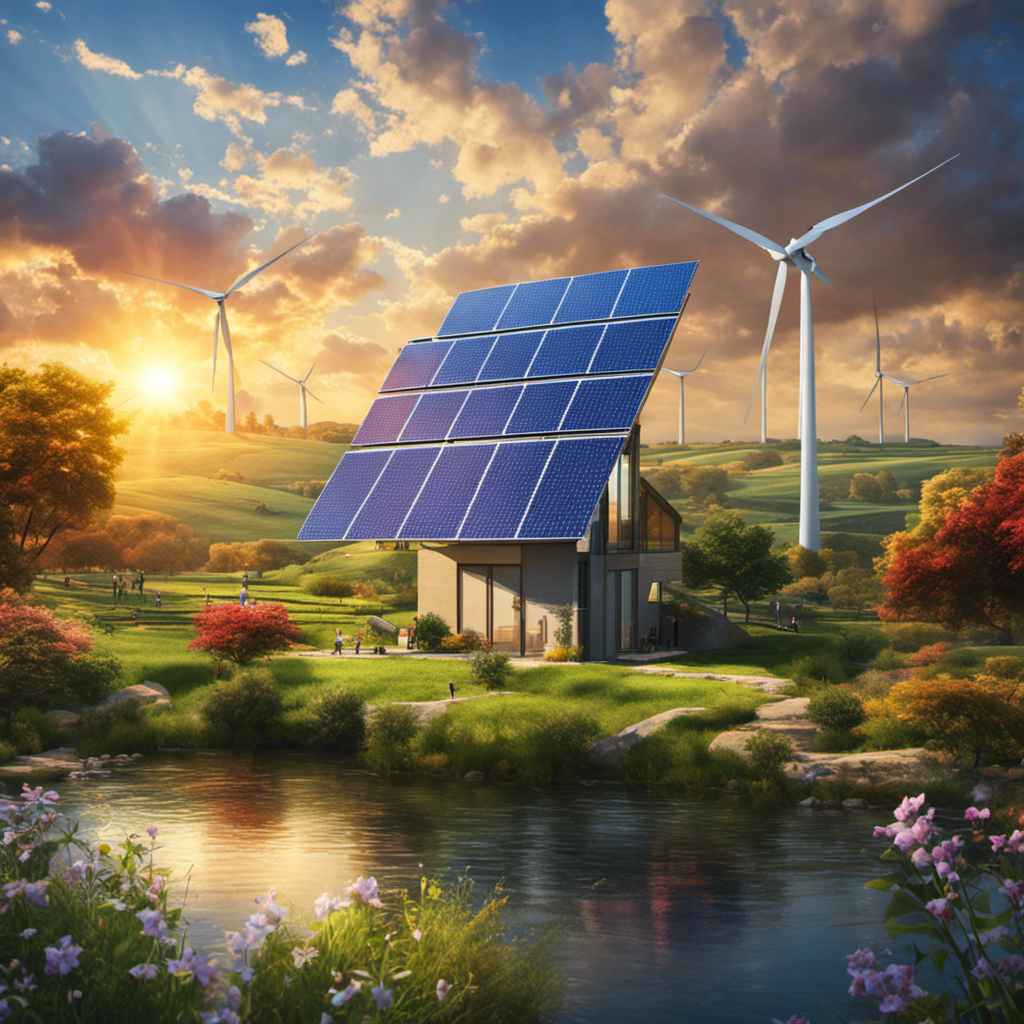
I’ve always been captivated by the possibilities of renewable energy sources, and now I’m eager to explore the realms of wind turbines and solar panels. These technologies are frequently celebrated as the next big thing in sustainable energy, but what’s the comparison like when it comes to their cost-effectiveness and efficiency?
Well, buckle up because we are about to explore the ins and outs of wind turbines and solar panels, breaking down the numbers and uncovering the truth behind the hype.
Get ready to be amazed by the possibilities that lie ahead!
Key Takeaways
- Wind turbines require a considerable amount of space for installation and are more suitable for large parcels of land in rural settings.
- Solar panels are relatively affordable and can be installed on most roofs, making them a cost-effective solution in Florida.
- Solar panels are more efficient than wind turbines, generating twice as much electricity.
- The cost of solar panels has significantly decreased in recent years, and government incentives and tax credits can further reduce the cost of installation.
Cost of Wind Turbines
The cost of wind turbines includes factors like type, size, and land requirements, which can make them a significant investment.
When considering the factors influencing wind turbine prices, it is important to note that larger turbines tend to have higher upfront costs. Additionally, the type of turbine, whether it is a horizontal-axis or vertical-axis design, can also impact the price.
Land requirements for wind turbines are another important consideration. Wind turbines require ample space for installation, as they need to be situated in areas with consistent wind conditions. This can limit their placement and require the acquisition of large parcels of land.
Overall, the cost of wind turbines is influenced by various factors, including size, type, and land requirements.
Factors Affecting Wind Turbine Cost
Installing wind turbines requires a significant amount of space. Factors like type, size, and land requirements affect the overall cost.
Factors that can affect wind turbine efficiency include the wind conditions in the area and the maintenance and upkeep of the turbines.
When comparing the installation costs of wind turbines and solar panels, it is important to consider the size and power output of the wind turbines, as well as the space they require. Wind turbines generally require more space and are not ideal for densely populated areas.
On the other hand, solar panels can be installed on roofs or in backyards and require less space. Additionally, advancements in solar technology have made it more efficient and accessible, leading to reduced installation costs.
Transmission Lines and Wind Turbine Cost
When considering wind power, it’s important to factor in the cost of transmission lines. These lines are necessary to transport the electricity generated by wind turbines to customers.
Here are three key points to consider regarding transmission lines and wind turbine cost:
-
Transmission line impact: The installation and maintenance of transmission lines can significantly add to the overall cost of wind power projects. The longer the distance between the wind farm and the consumer, the higher the transmission costs.
-
Wind turbine land requirements: Wind turbines require a considerable amount of space for installation. This land must be leased or purchased, which can add to the upfront costs of wind power projects. Additionally, the availability of suitable land for wind turbines can be limited in certain areas.
Wind Turbine Installation Requirements
I found that wind turbine installations require a significant amount of space and careful consideration of location. When it comes to wind turbine noise levels, it is important to place them away from residential areas to minimize any potential disturbances.
On the other hand, the solar panel installation process is relatively straightforward and can be done on most roofs. Solar panels do not produce any noise, making them a quiet and unobtrusive option for generating electricity. However, it is important to assess the location and orientation of the roof to ensure optimal sunlight exposure.
Overall, wind turbine installations require more space and consideration of noise levels, while solar panels offer a simpler and quieter installation process.
Affordability of Solar Panels
The price of solar panels has significantly decreased in recent years, making them a more affordable option for generating electricity. This affordability is due to advancements in technology and increased production. Here are three key points to consider:
-
Solar panel installation process: Installing solar panels is a relatively straightforward process. They can be installed on most roofs or in backyards, requiring minimal space. The installation involves mounting the panels, connecting them to the electrical system, and ensuring proper wiring and connections.
-
Maintenance requirements for wind turbines: Unlike wind turbines, solar panels require minimal maintenance. Wind turbines, on the other hand, require regular upkeep and maintenance checks. This includes predictive maintenance, condition-based monitoring, and unscheduled maintenance to extend the lifespan of the turbines.
-
Cost comparison: Solar panels have a lower cost-to-buy and maintain than wind turbines. Additionally, the cost of solar panels has significantly decreased, making them a cost-effective solution for generating electricity. Government incentives and tax credits can further reduce the cost of solar power installation, making it an attractive option for homeowners and businesses alike.
Overall, the affordability of solar panels, coupled with their low maintenance requirements, makes them a viable and cost-effective option for generating electricity.
Cost-Effectiveness of Solar Power in Florida
Installing solar power in Florida has proven to be a cost-effective solution for generating electricity. Not only does solar power provide clean and renewable energy, but it also offers significant cost savings in the long run. The cost of solar panels has significantly decreased in recent years, making them more accessible to homeowners and businesses. Additionally, government incentives and tax credits further reduce the upfront cost of solar power installation. In contrast, while wind power may be cost-effective in certain areas like Texas, it requires a considerable amount of space and has higher installation and maintenance costs. Furthermore, wind turbines can have a negative environmental impact, as seen in California, where concerns about bird deaths and noise pollution have been raised. Overall, solar power in Florida offers a more cost-effective and environmentally friendly solution for generating electricity.
| Solar Power in Florida | Wind Power in Texas | Environmental Impact of Wind Turbines in California | |
|---|---|---|---|
| Cost | Affordable and decreasing | Cost-effective in certain areas | Higher installation and maintenance costs |
| Efficiency | Less efficient than wind turbines | Varies based on location and conditions | Negative impact on birds and noise pollution |
| Installation | Can be installed on most roofs | Requires more space | Not suitable for densely populated areas |
| Maintenance | Minimal maintenance required | Regular upkeep and maintenance checks | Concerns about bird deaths and noise pollution |
Saving on Electricity Bills With Solar Panels
To maximize savings on electricity bills, it’s important to consider the potential of solar power. Here are three key points to consider about solar panel installation and the benefits of solar power for the environment:
-
Solar panel installation process:
- Solar panels are relatively affordable and can be installed on most roofs.
- Advancements in solar technology have made it more efficient and accessible.
- Reputable solar power installers ensure quality installation and system performance.
-
Benefits of solar power for the environment:
- Solar power reduces dependence on fossil fuels and decreases greenhouse gas emissions.
- The use of solar power helps to preserve natural resources for future generations.
- Solar power installations create job opportunities in the renewable energy sector.
Long-Term Cost Savings With Solar Power
When considering renewable energy options, I can’t help but think about the long-term cost savings associated with solar power. Solar panels have become more affordable in recent years, and with government incentives and tax credits, the upfront cost can be further reduced.
Not only do solar panels save you money on your electricity bills, but they also offer environmental benefits. Solar power reduces our dependence on fossil fuels and decreases greenhouse gas emissions, helping to preserve natural resources for future generations.
Additionally, the installation of solar power systems creates job opportunities in the renewable energy sector. Government policies promoting solar power have played a crucial role in its widespread adoption, making it a sustainable and cost-effective solution for both residential and commercial applications.
Decreasing Cost of Solar Panels
I’ve noticed that the cost of solar panels has significantly decreased in recent years, making them a more affordable option for renewable energy. This decrease in cost has led to the decreasing popularity of wind turbines.
Here are three reasons why solar panels are becoming a more popular choice:
-
Affordability: The decreasing cost of solar panels has made them an attractive option for homeowners and businesses. This affordability factor has contributed to the shift away from wind turbines.
-
Environmental Impact: Solar panels have a lower environmental impact compared to wind turbines. Solar power reduces dependence on fossil fuels and decreases greenhouse gas emissions, making it a more sustainable choice for energy production.
-
Versatility: Solar panels can be installed on rooftops, open fields, and even on the moon. This versatility allows for greater flexibility in choosing the location of energy production.
Overall, the decreasing cost of solar panels, combined with their lower environmental impact and versatility, has made them a more popular choice for renewable energy.
Government Incentives and Tax Credits for Solar Power
Government incentives and tax credits can significantly reduce the upfront cost of installing solar power systems. These incentives, offered at both the federal and state levels, aim to encourage the adoption of renewable energy and support the growth of the solar industry.
By providing financial assistance, such as grants, rebates, and tax credits, the government makes solar power installation more affordable and accessible for homeowners and businesses. These incentives can help offset the initial investment and shorten the payback period for solar installations.
Additionally, they contribute to the overall cost-effectiveness of solar power, making it a viable option for reducing electricity bills and promoting clean energy. Taking advantage of these government incentives is crucial when considering solar power installation.
Efficiency of Wind Turbines
Installing wind turbines requires careful consideration of factors such as wind conditions, size, and power output. When comparing the efficiency of wind turbines and solar panels, there are a few key points to consider:
-
Energy Conversion: Wind turbines can capture up to 50% of energy from wind, while solar panels convert around 20%. This means that wind turbines are more efficient in harnessing power from their respective sources.
-
Maintenance: Wind turbines require regular upkeep and maintenance checks to ensure optimal performance and extend their lifespan. On the other hand, solar panels require minimal maintenance and have a long lifespan, making them a low-maintenance option.
-
Lifespan: While wind turbines require more maintenance, they generally have a longer lifespan compared to solar panels. With proper upkeep, wind turbines can last for 20-25 years, while solar panels typically have a lifespan of 25-30 years.
Considering the upkeep of wind turbines and the lifespan of solar panels, it is important to weigh these factors when deciding between the two options.
Efficiency of Solar Panels
Maintaining solar panels is relatively easy, and they have a longer lifespan compared to wind turbines.
Solar panels have made significant advancements in technology, leading to increased efficiency and accessibility. These advancements have made solar power a viable option, even in remote areas where traditional power infrastructure is lacking.
Solar panels can provide clean and renewable energy in these areas, reducing dependence on fossil fuels and decreasing greenhouse gas emissions. Furthermore, solar power installations in remote areas can help improve the quality of life by providing electricity for essential services such as healthcare facilities and schools.
The development of solar power in remote areas not only benefits the environment but also contributes to job creation and economic growth. With ongoing advancements in solar technology, the potential for solar power in remote areas continues to expand.
Grid-Tied Vs Battery Storage for Solar Panels
When considering grid-tied vs battery storage for solar panels, the decision ultimately depends on the level of energy independence desired. Here are three key factors to consider:
-
Grid-tied:
- Allows for a constant supply of electricity from the grid, ensuring uninterrupted power.
- Excess energy generated by solar panels can be fed back into the grid, earning credits or reducing electricity bills.
- Relies on the stability and reliability of the grid, which may be subject to outages or fluctuations.
-
Battery storage:
- Provides the ability to store excess solar energy for use during periods of low sunlight or power outages.
- Offers greater energy independence by reducing reliance on the grid.
- Requires additional upfront costs for battery installation and maintenance.
The impact of government regulations on solar panel installation can also influence the decision. Incentives, tax credits, and streamlined permitting processes can make grid-tied or battery storage options more attractive. However, complex regulations or restrictions may limit the feasibility of certain installations.
Ultimately, it is important to evaluate personal energy needs, budget, and local regulations to make an informed decision.
Factors Affecting Solar Panel Output
One important factor that affects the output of my solar panels is the amount of sunlight they receive throughout the day. The efficiency of solar panels is highly dependent on the availability and intensity of sunlight. Different locations experience varying levels of sunlight, which directly impacts the output of solar panels.
Areas with more sunlight tend to have higher solar panel output, while areas with less sunlight have lower output. Other factors that can affect solar panel efficiency include the angle and orientation of the panels, shading from nearby objects or buildings, and the temperature.
It is important to consider these factors when comparing the output of solar panels in different locations. By analyzing these variables, we can make informed decisions about the installation and performance of solar panels.
Installation and Maintenance of Wind Turbines Vs Solar Panels
Installing and maintaining wind turbines and solar panels requires careful consideration of factors such as location, space requirements, and long-term performance. Here are some key insights regarding wind turbine maintenance requirements and solar panel installation options:
-
Wind turbine maintenance requirements:
- Regular upkeep and maintenance checks are necessary to ensure optimal performance.
- Predictive maintenance and condition-based monitoring can help reduce operational and maintenance costs.
- Real-time data and asset management software can aid in anticipating maintenance needs and facilitate remote maintenance.
-
Solar panel installation options:
- Solar panels can be installed on rooftops, open fields, and even on the moon.
- They require minimal maintenance and have a long lifespan.
- Solar power systems can be used for residential, commercial, and even lunar-based applications.
Overall, understanding the maintenance requirements of wind turbines and the various installation options for solar panels is crucial for making informed decisions and maximizing the benefits of renewable energy sources.
Frequently Asked Questions
Are There Any Government Incentives or Tax Credits Available for Wind Turbine Installation?
Yes, there are government incentives and tax credits available for wind turbine installation. These incentives and credits are designed to promote the use of renewable energy sources and reduce dependence on fossil fuels.
They can help offset the initial cost of installing wind turbines and make them more financially viable for individuals and businesses. It is important to research and understand the specific incentives and credits available in your area, as they can vary depending on location and other factors.
How Do Wind Turbines Compare in Terms of Noise Levels to Solar Panels?
Wind turbines and solar panels have different impacts on noise levels. Wind turbines can produce noise, often described as a ‘whooshing’ or ‘whirring’ sound, due to the rotating blades. This noise can vary depending on the turbine’s size and design.
Solar panels, on the other hand, do not produce any noise as they do not have moving parts.
It’s important to note that wind turbine noise can potentially impact wildlife, especially birds and bats, but research is ongoing to understand the extent of this impact.
Can Solar Panels Be Installed in Areas With Inconsistent Sun Exposure?
Solar panels can be installed in areas with inconsistent sun exposure, but their efficiency may be affected. In such areas, solar power may not be as cost-effective compared to regions with consistent sunlight.
However, advancements in solar technology have improved efficiency and made solar power a viable option in various climates.
It is important to evaluate the solar potential of your location and consider the environmental impact of switching to solar power before making a decision.
What Are the Main Factors That Affect the Output of Solar Panels?
Factors that affect the output of solar panels include sun exposure, location, and wattage usage. Shading can significantly impact the efficiency of solar panels, reducing their output. It is important to consider the positioning of solar panels to maximize sunlight absorption.
Additionally, the quality and maintenance of the panels can also affect their performance over time. By understanding these factors, we can make informed decisions about solar panel installations and ensure optimal energy generation.
Is There a Limit to the Size of Wind Turbines That Can Be Installed on Rooftops or in Backyards?
There are size limitations to installing wind turbines on rooftops or in backyards. The space requirements and height restrictions make it difficult to accommodate large wind turbines in residential areas. However, smaller wind turbines designed for residential use can be installed.
When comparing the cost, wind turbines generally require a larger upfront investment due to their size and installation requirements. Solar panels, on the other hand, can be installed on most roofs and have become more affordable in recent years.
Conclusion
In conclusion, after analyzing the cost and efficiency of wind turbines and solar panels, it is clear that both options have their unique advantages and considerations.
Wind turbines, with their ability to capture up to 50% of energy from the wind, are efficient and generate significant electricity. However, they require ample space, regular maintenance, and transmission lines for electricity transport.
On the other hand, solar panels are affordable, can be easily installed on roofs, and require minimal maintenance. While they have a lower efficiency of around 20%, they still generate twice as much electricity as wind turbines.
Ultimately, the choice between wind turbines and solar panels depends on the specific location, available space, and individual needs.
Solar
Creative Solar Decorations for Outdoor Spaces

I genuinely adore turning my outdoor areas into captivating sanctuaries full of originality and allure. Among the most creative methods I’ve found for accomplishing this involves the use of imaginative solar decorations.
These ingenious DIY projects not only add a touch of whimsy and beauty to any outdoor area, but they also harness the power of the sun to illuminate our surroundings in an eco-friendly and cost-effective way.
From quirky mason jar solar lights to stunning nylon or plastic globe lanterns, the possibilities are truly endless.
So join me as we explore the world of creative solar decorations for outdoor spaces and discover how to make our outdoor areas shine with style and sustainability.
Key Takeaways
- DIY solar decorations are a budget-friendly and customizable way to spruce up outdoor spaces.
- Mason jar solar lights offer a quirky and homey appeal with options for string lights or lanterns.
- Nylon or plastic globe lanterns provide efficient and charming lighting for gardens and events.
- Solar wall lights and post light fixtures enhance outdoor living spaces with ambiance, security, and long-lasting illumination.
Quirky Mason Jar Solar Lights
I love how quirky and homey mason jar solar lights add appeal to my outdoor space. These DIY solar light projects are a fun and creative way to brighten up any garden or patio.
By using solar powered fairy lights, I can create beautiful and eco-friendly lighting that doesn’t rely on electricity. The process is simple and requires basic supplies like mason jars, LED lights, and solar panels.
I can personalize my mason jar solar lights by painting the jars or adding fabric accents. Not only do these lights add a charming touch to my outdoor space, but they also save energy and reduce my carbon footprint.
DIY solar light projects are a cost-effective and sustainable way to enhance the ambiance of any outdoor area.
Dazzling Nylon or Plastic Globe Lanterns
Hung from fences or trees, nylon or plastic globe lanterns provide a charming and eco-friendly lighting solution for gardens and events. Here are four reasons why you should consider incorporating these dazzling lanterns into your outdoor space:
-
Versatility: Nylon or plastic globe lanterns can be easily hung from various structures, such as fences or trees, allowing you to create a whimsical ambiance wherever you desire.
-
Eco-friendly: These lanterns are solar-powered, meaning they harness energy from the sun during the day and automatically illuminate at night, reducing energy consumption and saving you money.
-
Aesthetically pleasing: The soft glow emitted by these lanterns adds a magical touch to any garden or event. Whether you’re hosting a party or simply enjoying a quiet evening outdoors, these lanterns create a delightful atmosphere.
-
Compatibility with other solar-powered decorations: Nylon or plastic globe lanterns can be seamlessly integrated with other solar-powered garden statues or DIY solar pathway lights, allowing you to create a cohesive and enchanting outdoor space.
Enhancing Outdoor Spaces With Solar Wall Lights
Researching features and prices helped me find the best solar wall light for enhancing my outdoor living space. Solar wall lights not only provide ambiance but also offer security for my home.
I opted for solar powered security lights to ensure energy efficiency and ease of installation. These lights are a great addition to DIY solar light projects, as they require no wiring and can be easily mounted on walls or fences.
The motion-sensing feature adds an extra layer of security, illuminating the area when someone approaches. With adjustable brightness settings, I can customize the lighting to suit my needs.
These solar wall lights have proven to be a valuable investment, enhancing the aesthetic appeal and functionality of my outdoor space.
Kemeco Solar Post Light Fixture: Timeless Illumination
The Kemeco Solar Post Light Fixture offers long-lasting illumination and a timeless design for enhancing entryways, driveways, and gardens. Here are some benefits of solar post lights and DIY solar post light ideas:
-
Low-cost option: Solar post lights are powered by the sun, eliminating the need for electricity and reducing energy costs.
-
Environmentally friendly: Solar post lights harness clean and renewable energy, reducing carbon emissions and protecting the environment.
-
Minimal maintenance: With no wiring or complicated installation required, solar post lights are easy to maintain and hassle-free.
-
Added safety and security: Solar post lights provide visibility and deter potential intruders, enhancing the safety and security of your outdoor spaces.
For DIY solar post light ideas, consider repurposing old lamp posts or creating unique designs using materials like wood, glass, or metal. Get creative and enjoy the benefits of solar-powered illumination in your outdoor areas.
Sustainable Solar Decorations for Gardens
I love incorporating sustainable solar-powered elements into my garden to add a touch of eco-friendly charm. Eco-friendly garden lighting is not only good for the environment, but it also creates a beautiful ambiance in outdoor spaces.
DIY solar garden projects are a great way to achieve this. With a few basic supplies, such as mason jars, LED lights, and solar panels, you can create unique and personalized solar decorations. Mason jar solar lights are a popular choice, offering a quirky and homey appeal. Nylon or plastic globe lanterns are another option, providing efficient and eco-friendly lighting.
Solar wall lights enhance outdoor living spaces and provide both ambiance and security. And don’t forget about the Kemeco solar post light fixture, which offers timeless illumination for your garden.
Festive Solar Lanterns for Outdoor Events
When planning outdoor events, festive solar lanterns are a great way to add charm and eco-friendly lighting. Here are four reasons why solar powered party lights and DIY solar lantern crafts are the perfect choice:
-
Environmentally friendly: Solar lanterns harness the power of the sun, reducing our carbon footprint and reliance on traditional electricity sources.
-
Cost-effective: DIY solar lantern crafts allow for budget-friendly decorations, as they require basic supplies and don’t need special tools or skills.
-
Creative expression: Making your own solar lanterns gives you the freedom to personalize and customize them according to your event’s theme or your personal style.
-
Easy installation: Solar lanterns are hassle-free to set up, as they don’t require any wiring or electrical connections. Simply find a sunny spot and hang them up for instant ambiance.
Illuminate your outdoor events with festive solar lanterns, while embracing sustainability and creativity.
Ambient and Secure: Solar Wall Light Options
When it comes to outdoor lighting, solar wall lights are a fantastic choice. These lights not only enhance the ambiance of your outdoor living spaces, but also provide an added layer of security. With their easy installation and adjustable features, solar wall lights are a practical and convenient lighting solution.
Here are some key features to look for when choosing solar wall lights:
| Features | Benefits |
|---|---|
| Easy installation | No wiring required, saving time and money |
| Adjustable brightness | Customize the lighting according to your needs |
| Motion-sensing capability | Provides additional security and peace of mind |
| Multiple mounting options | Versatile installation options to suit your space |
In addition to their features, solar wall lights also offer several benefits. They are a low-cost option, environmentally friendly, and require minimal maintenance. Furthermore, they add safety and security to your outdoor areas while enhancing the overall aesthetic appeal.
Adding Charm With Mason Jar Solar Lanterns
To add charm to my outdoor areas, I can incorporate mason jar solar lanterns. These DIY solar lanterns are not only cost-effective but also easy to make. Here’s how you can create your own magical outdoor decor:
-
Gather the supplies: Mason jars, solar powered fairy lights, paint, and fabric.
-
Clean and paint the mason jars in your desired color.
-
Wrap the solar powered fairy lights around the inside of the jars.
-
Attach fabric or ribbon to the top of the jars for a decorative touch.
With these simple steps, you can transform your outdoor space into a whimsical wonderland. The solar powered fairy lights will create a warm and inviting atmosphere, while the mason jars add a rustic charm.
Enjoy the beauty of your DIY solar lanterns and bask in the enchantment they bring to your outdoor areas.
Frequently Asked Questions
What Type of Paint Should I Use to Decorate My Mason Jar Solar Lights?
I recommend using spray paint techniques to decorate your mason jar solar lights. Spray paint provides an even and smooth finish, giving your lights a professional look.
For a vibrant and glossy appearance, choose acrylic spray paint. If you prefer a matte or textured finish, opt for chalk or textured spray paint.
Additionally, you can explore alternative paint options such as glass paint or enamel paint for a more specialized effect.
Experiment with different colors and techniques to create unique and eye-catching solar light decorations.
Can I Use Solar Wall Lights Indoors?
Yes, you can use solar wall lights indoors, but their efficiency may be reduced due to the limited access to sunlight.
However, there are still benefits to using solar lights indoors. They’re environmentally friendly, cost-effective, and require minimal maintenance.
Solar lights can enhance the ambiance of indoor spaces and provide additional lighting options. Consider placing them near windows or in areas with natural light to maximize their effectiveness.
How Long Do the Batteries in Nylon or Plastic Globe Lanterns Last?
The longevity of solar batteries in nylon or plastic globe lanterns can vary depending on several factors. Factors affecting the lifespan of solar batteries in outdoor solar decorations include the quality of the batteries, the amount of sunlight received, and the efficiency of the solar panels.
Generally, the batteries in nylon or plastic globe lanterns can last anywhere from 6 to 12 hours on a full charge. It’s important to ensure that the lanterns are placed in a location that receives ample sunlight for optimal battery performance.
Are Kemeco Solar Post Light Fixtures Waterproof?
Yes, Kemeco solar post light fixtures are waterproof. They are designed to withstand outdoor elements and provide long-lasting illumination for up to 8 hours every evening.
With their durable plastic construction and UV resistance, these fixtures are built to last.
In addition to being waterproof, solar post lights offer many benefits, including low-cost operation, minimal maintenance, enhanced aesthetic appeal, and added safety and security.
Investing in solar post lights is a smart choice for any outdoor space.
Can I Use Solar Lanterns for Indoor Events or Parties?
Yes, solar lanterns can be used for indoor events or parties.
Solar lanterns provide a convenient and eco-friendly lighting option for indoor spaces. They can be hung or placed around the room to create a warm and inviting ambiance.
Solar string lights are especially popular for indoor parties, as they can be easily draped along walls or suspended from the ceiling.
These solar-powered decorations eliminate the need for electricity and allow you to enjoy a beautiful and sustainable lighting solution.
Conclusion
In conclusion, creating creative solar decorations for outdoor spaces is not only a budget-friendly option, but it also adds a touch of charm and ambiance to your outdoor areas.
Whether it’s mason jar solar lights, nylon or plastic globe lanterns, or solar wall lights, there are endless possibilities to enhance your outdoor space.
Not only are these decorations environmentally friendly, but they also require minimal maintenance.
So why not add a touch of whimsy and sustainability to your outdoor space with these DIY solar decorations?
Let your creativity shine and transform your outdoor space into a magical oasis.
Solar
Efficient and Stylish Solar Wall Lights for Any Space

Solar energy has always captivated me with its ability to offer efficient and environmentally friendly lighting solutions. This is why I’m thrilled to discuss the amazing advantages of solar top wall lights with you.
These stylish and cost-effective lights are not only easy to install, but they also come in a variety of styles to suit any space. With long-lasting LED bulbs, motion sensors, and remote control capabilities, these lights are the perfect choice for anyone looking to illuminate their surroundings while reducing their carbon footprint.
Key Takeaways
- Solar top wall lights are cost-effective and easy to install.
- They come in a variety of styles to fit any space.
- Solar top wall lights are long-lasting and energy-efficient.
- They offer affordability and a variety of options to suit different needs.
Installation and Features of Solar Top Wall Lights
I love how easy it is to install solar top wall lights and the variety of styles they come in.
Not only do these lights provide cost-saving benefits, but they also offer a stylish and efficient lighting solution for any space.
When it comes to installation, there are a few tips to keep in mind. Firstly, choose a spot that receives plenty of sunlight throughout the day to ensure optimal charging. Additionally, consider models with remote solar panels for easier installation.
These lights also come with motion sensors that automatically turn on when needed, providing added convenience and security. With adjustable brightness settings, ON/OFF times, and remote-control capabilities, you have full control over your lighting experience.
The durable materials used in their construction make them suitable for withstanding harsh weather conditions.
Overall, solar top wall lights are a cost-effective and hassle-free option for illuminating your outdoor space.
Long-lasting and Energy-efficient Solar Top Wall Lights
Some models of these lights can be plugged in to keep them running during low sunlight. When comparing solar wall lights to traditional wired lighting, the benefits of adjustable motion sensors become apparent.
Here are some advantages of long-lasting and energy-efficient solar top wall lights:
-
Convenience: Solar wall lights require minimal maintenance and are hassle-free to install, making them accessible for people of all ages.
-
Cost-effectiveness: Solar wall lights are inexpensive compared to traditional wired lighting and provide an ideal solution for energy-efficient lighting.
-
Eco-friendliness: Solar wall lights use solar energy to charge a battery that powers LED bulbs, reducing carbon footprint and promoting sustainability.
-
Safety: Adjustable motion sensors enhance security by automatically turning on the lights when needed, providing added safety for residential and commercial outdoor spaces.
Affordability and Variety of Solar Top Wall Lights
When considering solar top wall lights, it is important to note the affordability and wide range of options available to suit different needs. Solar wall light designs offer both functionality and style, making them a versatile choice for any space.
Not only do these lights provide energy-saving benefits, but they also come in various styles and sizes to fit your specific requirements. Whether you need security lighting or want to enhance the aesthetics of your outdoor area, solar wall lights have got you covered.
With their easy installation process and low maintenance requirements, they offer an affordable and hassle-free alternative to traditional wired lighting. Plus, they are environmentally friendly, using solar energy to power the LED bulbs.
Solar Panel – Primary Component of a Solar Wall Lamp
The primary component of a solar wall lamp is the solar panel, which converts solar energy into electricity and ensures the functionality and performance of the light. To optimize solar panel efficiency and battery life, it is important to consider the following:
-
Solar Panel Efficiency:
-
Choose high-quality solar panels for optimal performance.
-
Install the solar panel in a location with direct sunlight throughout the day.
-
Regularly clean the solar panel to remove any dirt or debris that may obstruct sunlight absorption.
-
Battery Life Optimization:
-
Select a high-quality and rechargeable battery to ensure continuous usage.
-
Match the battery selection to the requirements of the solar panel.
-
Consider using high-capacity batteries for longer-lasting performance.
Rechargeable and High-Capacity Batteries
I prefer using rechargeable and high-capacity batteries for my solar wall lamps to ensure continuous usage and longer-lasting performance. Battery performance is crucial when it comes to solar wall lights. The right battery selection can greatly impact the functionality and longevity of the lights. High-capacity batteries provide more power and allow the lights to operate for extended periods without the need for recharging. This is especially important during the darker winter months when sunlight may be limited. Rechargeable batteries are essential as they can be easily replenished using solar energy. By choosing the right batteries, I can maximize the performance of my solar wall lamps and enjoy bright and reliable lighting throughout the night. Here is a table showcasing the importance of battery performance and selection:
| Battery Type | Capacity | Performance |
|---|---|---|
| Rechargeable | High | Long-lasting |
| Non-rechargeable | Low | Short-lasting |
| Lithium-ion | High | High efficiency |
| Nickel-metal | Medium | Moderate |
Choosing the right battery for your solar wall lights is essential for optimal performance and longevity.
Cost-effectiveness and Ease of Installation
Installing solar top wall lights is a cost-effective and easy process that anyone can do. These lights offer numerous benefits over traditional wired lighting options.
Here’s a comparison between solar wall lights and traditional wired lighting:
-
Cost effectiveness and environmental impact of solar wall lights:
-
Solar wall lights utilize renewable solar energy, reducing electricity costs.
-
They have no ongoing electricity expenses, resulting in long-term savings.
-
Solar lights are eco-friendly, reducing carbon footprint and promoting sustainability.
-
Comparison with traditional wired lighting options:
-
Solar wall lights require no wiring, eliminating the need for professional installation.
-
They can be easily moved or repositioned as needed.
-
Solar lights are low maintenance, with no need for bulb replacements or wiring repairs.
With their cost-effectiveness, environmental impact, and ease of installation, solar top wall lights are an excellent choice for stylish and efficient lighting solutions.
Stylish Designs for Any Space
Featuring a variety of designs, these top wall lights are perfect for adding a touch of style to any outdoor area. With their sleek and modern designs, they are not only functional but also aesthetically pleasing. Whether you are looking to enhance your garden, patio, or backyard, these solar wall lights offer stylish options for all outdoor spaces. The table below showcases some of the popular designs available for landscaping purposes:
| Design | Description | Suitable for |
|---|---|---|
| Lantern | Classic and elegant | Traditional homes |
| Contemporary | Clean lines and minimalistic | Modern landscapes |
| Vintage | Rustic and old-fashioned | Cottage gardens |
These solar wall lights are not only visually appealing but also energy-efficient. They harness the power of the sun to provide illumination, making them eco-friendly and cost-effective. So, why settle for ordinary outdoor lighting when you can have stylish solar wall lights that not only enhance your landscaping but also contribute to a greener environment?
LED Bulbs With Long-Lasting Performance
With their durable LED bulbs, these solar top wall lights provide long-lasting performance for outdoor lighting needs. The benefits of LED bulbs in solar wall lights are numerous. They are energy-efficient, consuming less power while providing bright illumination. LED bulbs also have a longer lifespan compared to traditional bulbs, reducing the need for frequent replacement.
To maximize the lifespan of LED bulbs in solar wall lights, here are some tips:
- Ensure the solar panel receives ample sunlight for efficient charging.
- Clean the solar panel regularly to remove dirt and debris that may obstruct sunlight.
- Avoid exposing the lights to extreme temperatures, as this can affect the performance of the LED bulbs.
- Use a dimmer setting, if available, to reduce the strain on the LED bulbs and extend their lifespan.
- Consider purchasing solar wall lights with adjustable brightness settings to customize the lighting according to your needs.
Remote-Control Capabilities for Convenience
I love the convenience of being able to control my solar top wall lights remotely. With their remote control capabilities, I can easily adjust the brightness settings, switch them on or off, and set the desired operating times. This feature allows me to customize the lighting according to my needs and preferences, all from the comfort of my home.
Not only does it save me time and effort, but it also adds a level of convenience and flexibility to my outdoor lighting setup.
In addition to the remote control capabilities, solar top wall lights also offer energy-saving features. By harnessing the power of the sun, these lights are not only environmentally friendly but also cost-effective. The built-in solar panels collect sunlight during the day and convert it into electricity, charging the batteries that power the LED bulbs at night. This eliminates the need for traditional electricity and reduces energy consumption.
The energy-saving features of solar top wall lights not only help to lower electricity bills but also contribute to a greener and more sustainable lifestyle.
Motion Sensors for Enhanced Safety
The motion sensors in my solar top wall lights add an extra layer of safety by automatically turning on the lights when needed. This feature has several benefits:
- Increased security: The lights turn on when motion is detected, deterring potential intruders and providing peace of mind.
- Energy efficiency: The lights only activate when necessary, saving energy and reducing electricity costs.
Installation tips:
- Proper placement: Install the lights in areas where motion is likely to occur, such as entrances, walkways, and driveways.
- Height adjustment: Position the lights at a height that maximizes the motion sensor’s range without being affected by pets or passing vehicles.
By incorporating motion sensors into your solar top wall lights, you can enjoy enhanced safety and convenience while also saving energy.
Take advantage of this feature and install solar top wall lights with motion sensors today.
Durable Materials for Harsh Weather Conditions
Rain or shine, the durable materials of my solar top wall lights ensure long-lasting performance in harsh weather conditions. These lights are specifically designed to withstand extreme climates and are made with weather-resistant materials. Whether it’s snow, rain, or intense heat, these lights will continue to function optimally.
The use of high-quality materials ensures that they can withstand the elements without getting damaged or deteriorating over time. This durability makes them ideal for outdoor spaces that are exposed to harsh weather conditions. With these weather-resistant materials, you can have peace of mind knowing that your solar top wall lights will continue to provide reliable and efficient lighting, no matter what the weather is like.
Don’t compromise on quality when it comes to durability in extreme climates – choose solar top wall lights with weather-resistant materials for long-lasting performance.
Wide-angle Design for Illuminating Larger Areas
When it comes to solar top wall lights, versatility is key. Not only do they need to withstand harsh weather conditions, but they also need to provide ample light for larger areas. That’s where the wide-angle design comes into play.
These lights are specifically engineered to illuminate larger spaces, making them perfect for driveways, patios, and gardens. But it doesn’t stop there. With adjustable brightness settings, you have complete control over the amount of light emitted, ensuring the perfect ambiance for any occasion.
And to make things even more convenient, many solar top wall lights come with remote-controlled operation, allowing you to effortlessly turn them on and off from a distance.
With their wide-angle design and adjustable settings, these lights offer both practicality and style for any outdoor space.
Suitable for Residential and Commercial Use
I find it impressive that solar top wall lights are suitable for both residential and commercial use. These versatile lights offer a cost-effective and aesthetically pleasing solution for outdoor lighting needs. Let’s compare their applications in residential and commercial settings:
| Residential Applications | Commercial Applications |
| ——————————- | ——————————- |
| Illuminate pathways and gardens | Enhance the ambiance of outdoor spaces |
| Enhance home security | Illuminate parking lots and walkways |
| Create a welcoming atmosphere | Highlight signage and building features |
| Add a decorative touch to exteriors | Provide safety lighting for commercial properties |
Solar top wall lights strike a balance between cost effectiveness and aesthetics. For residential use, they offer an affordable and energy-efficient option to enhance the beauty and security of homes. In commercial applications, these lights provide an economical and eco-friendly solution for illuminating large areas and promoting safety. Their easy installation and low maintenance make them accessible to people of all ages. Whether it’s a residential garden or a commercial parking lot, solar top wall lights are a versatile lighting option that combines functionality and style.
Eco-friendly and Minimal Maintenance Requirements
Using solar top wall lights is a great way to reduce environmental impact while minimizing the need for regular upkeep. These eco-friendly lighting solutions offer a low-maintenance option for illuminating outdoor spaces. Here are some maintenance tips for solar wall lights:
- Keep the solar panels clean and free from debris to ensure optimal sunlight absorption.
- Check the batteries regularly and replace them if they show signs of deterioration.
- Inspect the LED bulbs for any damage or dimming and replace them as needed.
- Test the motion sensors to ensure they are functioning properly.
- Securely mount the lights to prevent them from falling or getting damaged in strong winds.
Frequently Asked Questions
Can Solar Top Wall Lights Be Used Indoors?
Yes, solar top wall lights can be used for indoor lighting. They are a convenient and energy-efficient option for illuminating indoor spaces.
These lights use solar energy to charge their batteries, which power the LED bulbs. They are easy to install and come in a variety of styles to suit any indoor space.
With their long-lasting and eco-friendly features, solar top wall lights are an excellent choice for efficient and stylish indoor lighting.
How Long Do the Batteries in Solar Top Wall Lights Typically Last?
The batteries in solar top wall lights typically last for a few years, depending on usage and charging efficiency. It’s important to choose high-quality batteries that match the requirements of the solar panel.
Rechargeable and high-capacity batteries are preferred for longer-lasting performance. With proper maintenance and care, you can expect the batteries to provide reliable power for your solar wall lights, ensuring they stay illuminated throughout the night.
Are There Any Additional Accessories or Components Required for Installation?
There are no additional accessories or components required for the installation of solar top wall lights. They are designed to be a hassle-free alternative to wired lighting systems. They can be easily installed without the need for any additional components.
In terms of compatibility with existing lighting systems, solar top wall lights can be used as standalone fixtures or integrated into an existing setup. They provide a cost-effective and environmentally friendly solution for efficient and stylish lighting in any space.
Can Solar Top Wall Lights Be Dimmed or Adjusted for Different Brightness Levels?
Yes, solar top wall lights can be dimmed or adjusted for different brightness levels. These lights come with brightness adjustment features that allow you to customize the intensity of the light according to your preference.
Whether you want a soft, ambient glow or a brighter illumination, you can easily adjust the brightness settings. This flexibility ensures that you can create the perfect lighting ambiance for your outdoor space.
Are There Any Warranties or Guarantees on the Performance and Durability of Solar Top Wall Lights?
Yes, there are performance guarantees and durability warranties available for solar top wall lights. These guarantees and warranties ensure that the lights will perform efficiently and last for a long time. They provide peace of mind and protection for your investment.
It is important to choose lights from reputable manufacturers that offer these assurances. By doing so, you can have confidence in the performance and durability of your solar top wall lights.
Conclusion
In conclusion, solar top wall lights are a fantastic option for anyone looking to add efficient and stylish lighting to their space.
With easy installation, long-lasting LED bulbs, and motion sensor capabilities, these lights provide convenience and energy savings.
The wide variety of styles ensures that there is a perfect fit for any aesthetic.
By harnessing solar energy, these lights are not only cost-effective but also eco-friendly.
With minimal maintenance requirements and durable materials, solar top wall lights are a reliable and sustainable lighting solution for both residential and commercial use.
-
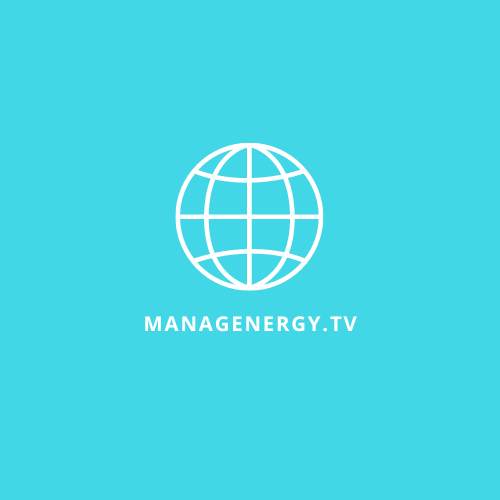
 Sustainable Supply Chain Management2 months ago
Sustainable Supply Chain Management2 months agoManagEnergy Acquires GPST2030.org Domain to Strengthen Commitment to Sustainable Transport
-

 Wind Energy2 months ago
Wind Energy2 months agoHow Much Oil Does It Take To Lubricate A Wind Turbine
-

 Electric Motorbike2 weeks ago
Electric Motorbike2 weeks agoCalifornia Electric Motorcycle Laws: A Comprehensive Guide to Riding Safely
-

 Electricity Vehicle2 weeks ago
Electricity Vehicle2 weeks agoThe Future of Electric Vehicles: Trends and Innovations to Watch
-
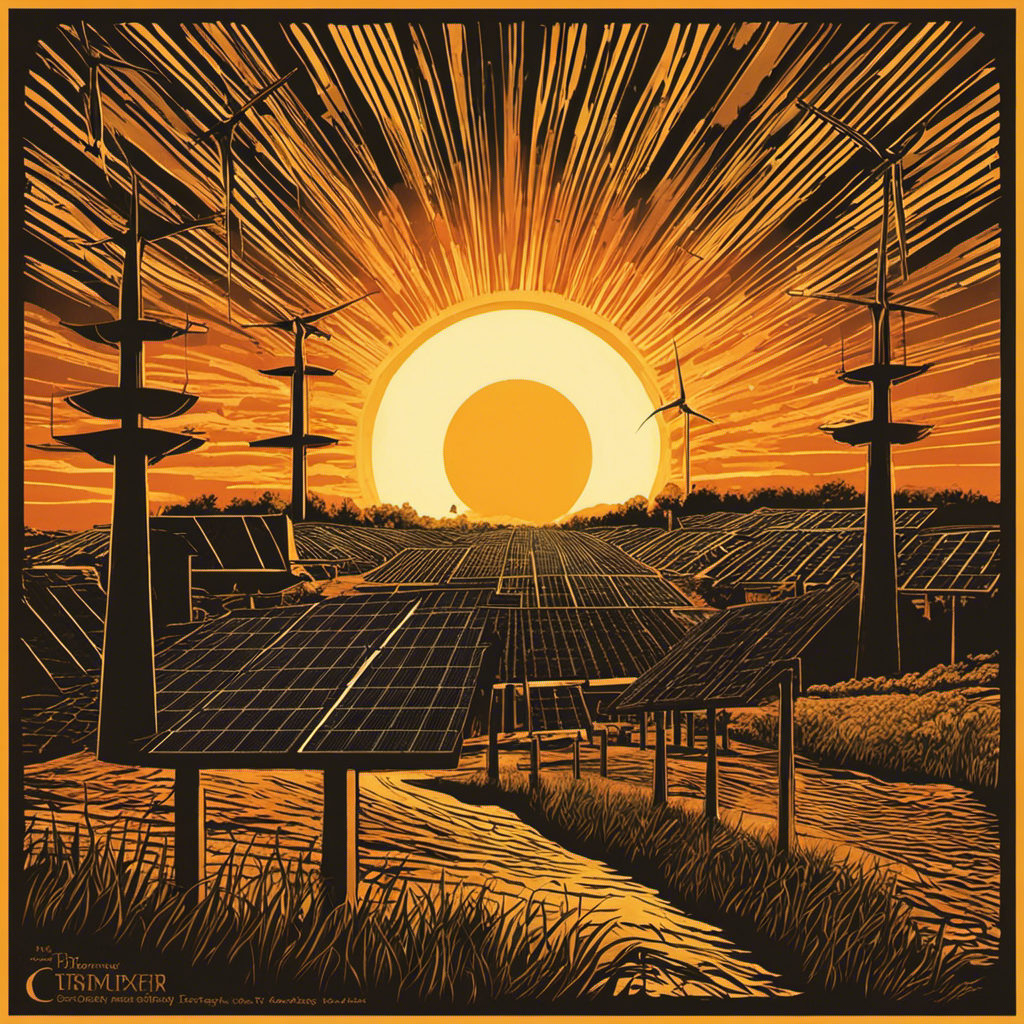
 Solar2 months ago
Solar2 months agoIn 2009, About What Percent Of U.S. Energy Consumption Was Supplied By Solar Energy
-

 Wind Energy2 weeks ago
Wind Energy2 weeks agoEnvironmental Innovation Turned Deadly: Ocean Wind Turbines Pose Threat to Whales’ Survival
-

 Wind Energy2 weeks ago
Wind Energy2 weeks agoRevolutionizing Highways: Wind Turbines Take the Road to Renewable Energy
-
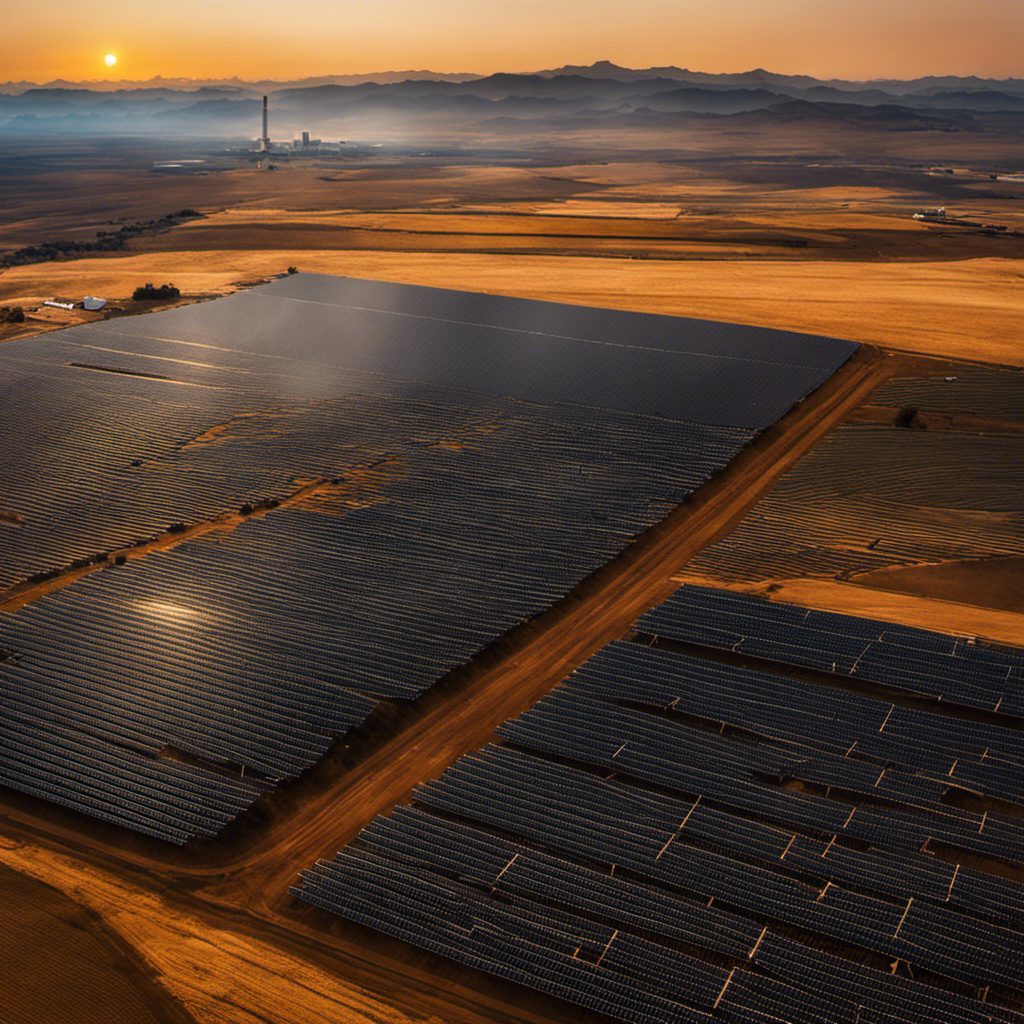
 Solar2 months ago
Solar2 months agoWhy Should We Use Solar Energy Instead Of Fossil Fuels
